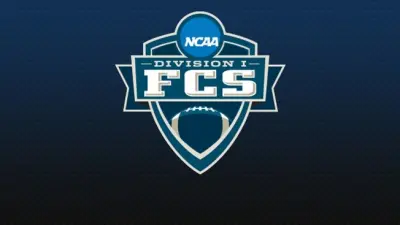By Scott Salomon
At 5:18 PM EST on Thursday, the Atlantic Coast Conference fired a shot to the bow of Florida State University’s athletic department and Board of Trustees as it sued the University before the school filed their own lawsuit on Friday seeking to get out of the conference without having to pay the King’s Ransom of $520 million.
Florida State, who was left out of the College Football Playoffs this season, despite going undefeated and winning the ACC title, has made its feelings known that it would like to leave the conference forthwith, perhaps as soon as 2025 and go to greener pastures where the television contract would provide the school with more revenue.
This comes after Florida State was the first undefeated (13-0) power five team to not make it into the College Football Playoffs, but during the Board of Trustees meeting in Tallahassee, it was emphasized that these motions have been a long time coming.
“This is not a reaction. We’ve spent a lot of time on this carefully… We have to do what’s best for our University and for our Athletics Department,” said FSU President Richard McCullough.
NEW VIDEO: ACC files lawsuit in North Carolina against Florida State Board of Trustees https://t.co/3M9JxF2ZCU
— ABC 27 (@abc27) December 23, 2023
The Conference has summarized their lawsuit as follows:
More Sports News
“At its core, this case involves the legal promises of Florida State and its obligations to the Conference to which it has belonged and from which it has profited from for more than 30 year. In 2013 and 2016, Florida State, along with the other Members of the ACC, agreed to and executed a ‘Grants of Rights’ through which it transferred the exclusive media rights to all its ‘home’ games contests to the Conference (the ‘Media Rights’). Florida State and the other Members of the ACC made these grants so that the Conference could negotiate a long-term contract and agreements with ESPN. By aggregating these collective Media Rights in the Conference, the Members were able to realize more value from those Media Rights than if they had each attempted to market them separately.”
The Seminoles Board of Trustees filed their own lawsuit on Friday in Leon County, Florida, where FSU is located. However, the language set forth in the Grant of Rights and the television contracts will give FSU’s lawyers fits and the college football world needs to buckle in as this is going to be a very tumultuous ride and will not end quickly. The ACC would not allow the media to review the television contracts, which will probably be released during the discovery phase of the litigation.
The Grant of Rights was attached as an exhibit to the ACC’s lawsuit.
The ACC issued a statement with regards to that lawsuit set forth below. The statement was a joint effort on behalf of ACC Commissioner Jim Phillips and ACC Chairman of the Board of Directors Jim Ryan.
A copy of Florida State’s legal statement can be found here.
“Florida State’s decision to file action against the Conference is in direct conflict with their longstanding obligations and is a clear violation of their legal commitments to the other members of the Conference. All ACC members, including Florida State, willingly and knowingly re-signed the current Grant of Rights in 2016, which is wholly enforceable and binding through 2036. Each university has benefited from this agreement, receiving millions of dollars in revenue and neither Florida State nor any other institution, has ever challenged its legitimacy.“
“As a league, we are proud of the successes of our student-athletes and that the ACC has won the most NCAA National Championships over the past two and half years while also achieving the highest graduation success and academic performance rates among all FBS conferences, so it is especially disappointing that FSU would choose to pursue this unprecedented and overreaching approach.“
“We are confident that the Grant of Rights, which has been honored by all other universities who signed similar agreements, will be affirmed by the courts and the Conference’s legal counsel will vigorously enforce the agreement in the best interests of the ACC’s current and incoming members.”
One of the main issues that will have to be decided off the bat is which Court will have jurisdiction over the matter. The judges in the case will have to confer and hold hearings to decide whether the matter will be litigated in Mecklenburg County, North Carolina, where the ACC maintains its office, or Leon County, Florida, where Florida State is situated.
Either party may seek to remove the cases to Federal Court and have them codified into one matter under the theory that the damages meet the federal court threshold and there is a diversity of jurisdiction as the two organizations maintain their principal places of business in different states.
#BREAKING: The Atlantic Coast Conference has filed a lawsuit against the Board of Trustees that was filed yesterday in Mecklenburg County.
On page four, the ACC claims that “Florida State matters regarding the ACC are subject to the jurisdiction of the state of North Carolina.” pic.twitter.com/6zsYojB8wN
— Alison Posey (@AlisonPosey14) December 22, 2023
The suit was filed in anticipation of Florida State coming at the ACC on Friday.
At issue is the penalty for seeking withdrawal from the conference. The ACC, in its 33-page filing is seeking a declaration from the Court that its Grant of Rights is exclusive and that its penalties for seeking to withdraw from same should be upheld.
Florida State believes otherwise.
A graphic was shown at the Board of Trustees meeting by Tallahassee Attorney David Ashburn, who is representing the board, as he spoke, reflecting penalty amounts universities would have to pay in order to exit the ACC. As of 2023, the penalty amount sits at $572,000,000.
However, Ashburn claims ACC’s penalty package is a violation of Florida law.
“We are alleging that the penalty package, both the grant of rights individually and conjunction with the several withdrawal penalty is a violation,” said Ashburn.
On Friday, Ashburn said, “The ACC has failed to appropriately give FSU the value it’s athletic program media rights. They diluted those rights going forward.”
Going back over Florida State's lawsuit, and one thing that strikes me is allegation that FSU (and other members) were essentially coerced into reaffirming commitment to grant of rights in 2016, as a condition of ESPN proceeding with ACC Network. pic.twitter.com/VjUtbc9jjH
— Andrew Carter (@_andrewcarter) December 23, 2023
Florida State has won 91 conference championships in various sports throughout its 32-year affiliation with the Conference. Losing Florida State would severely diminish the value of the Conference and would lower its conference payouts from the television deals with the ACC Network and ESPN.
It is no secret that several universities have looked into leaving the fledging ACC for more money in another conference that has richer media contracts. This combination of cases will have a major impact on the future of the remainder of the conference and whether it will remain in existence, or pass away like the PAC-12 did when ten teams bolted due to monetary reasons.


















